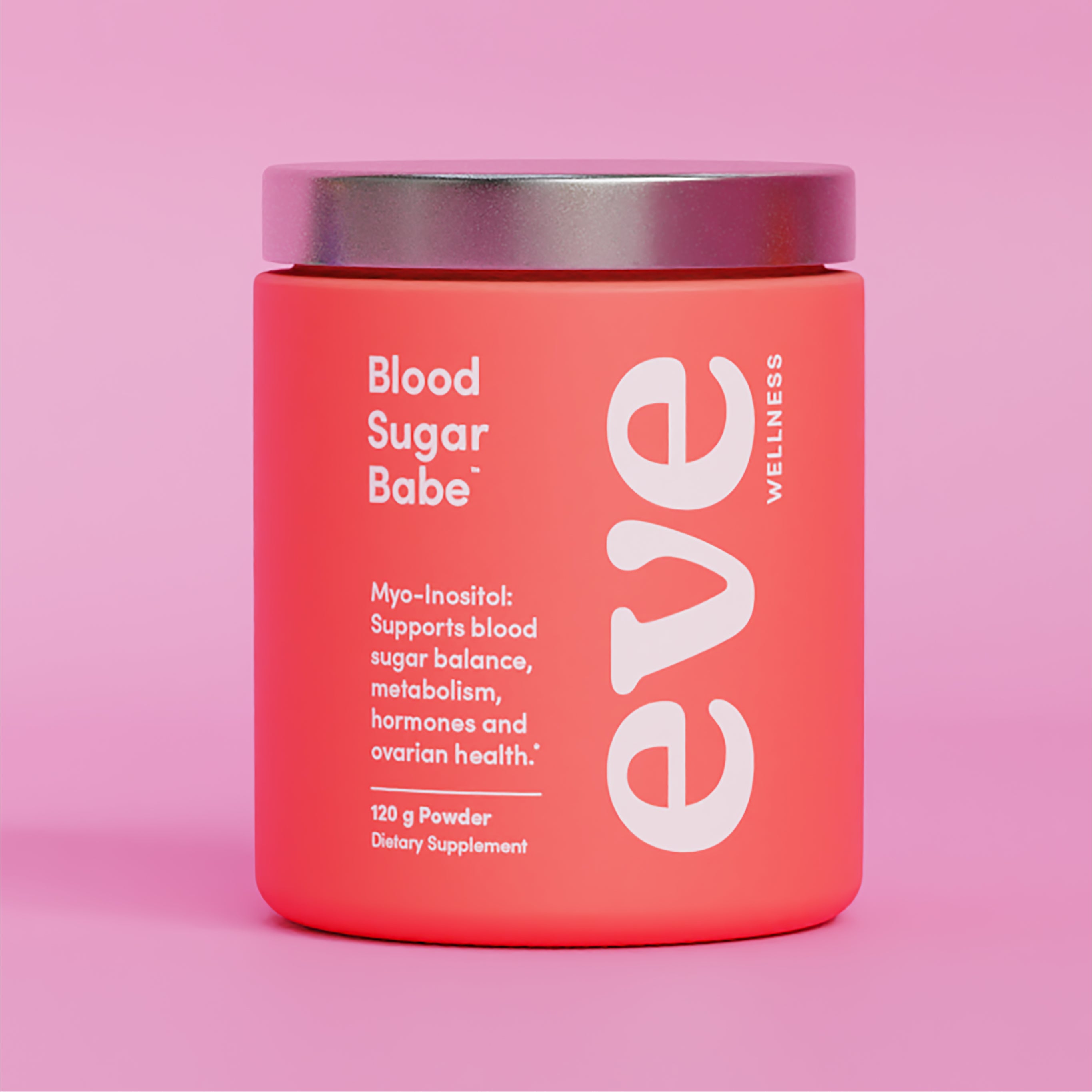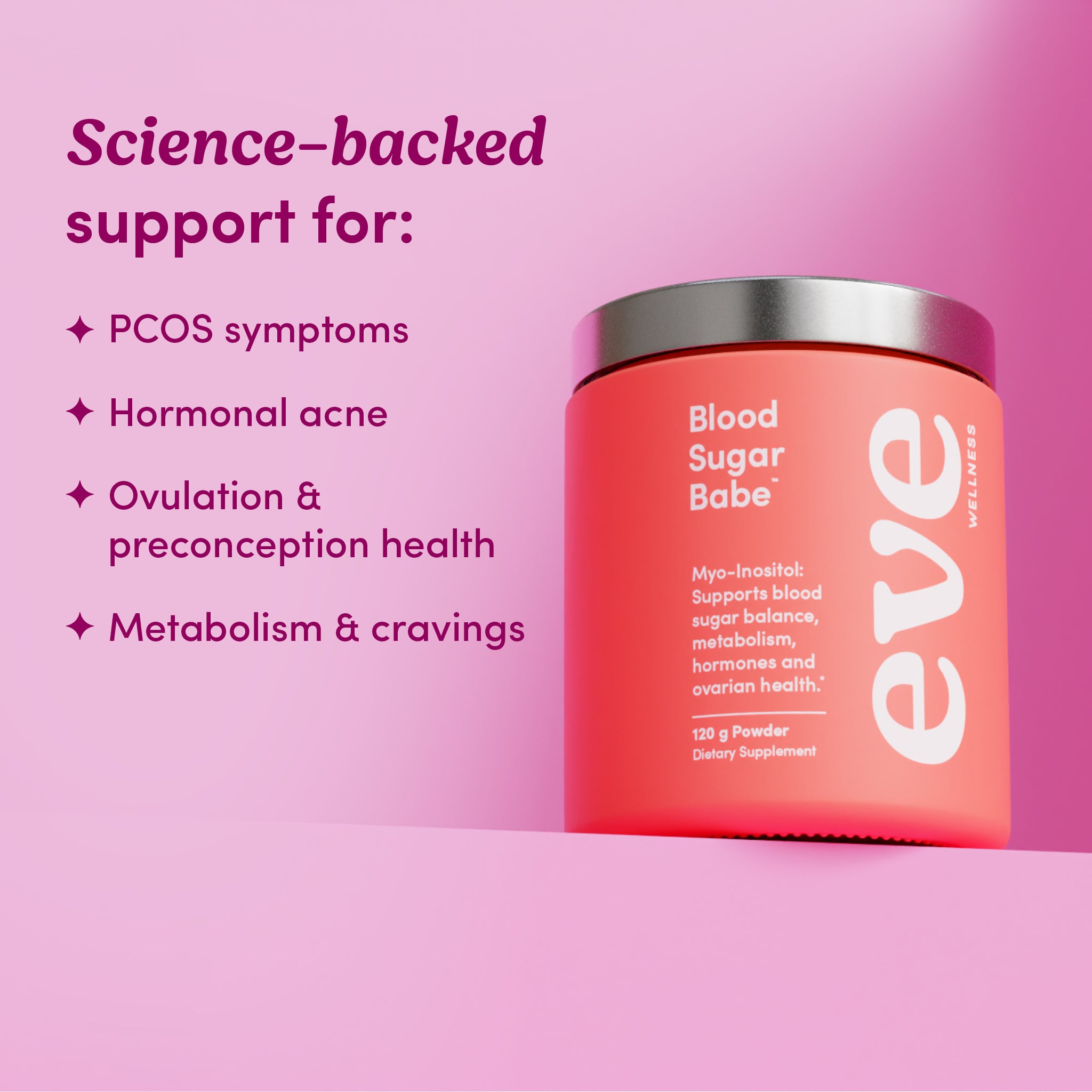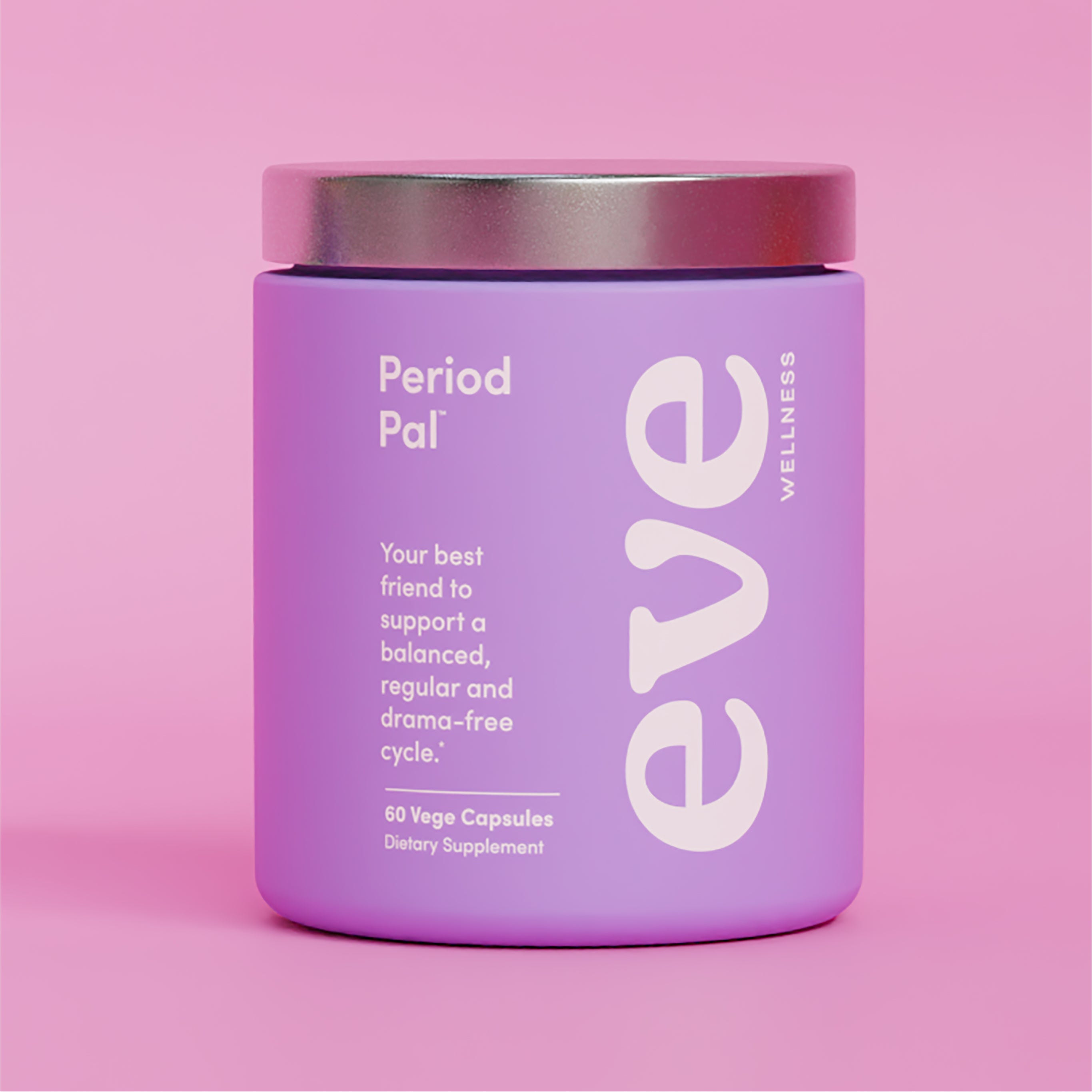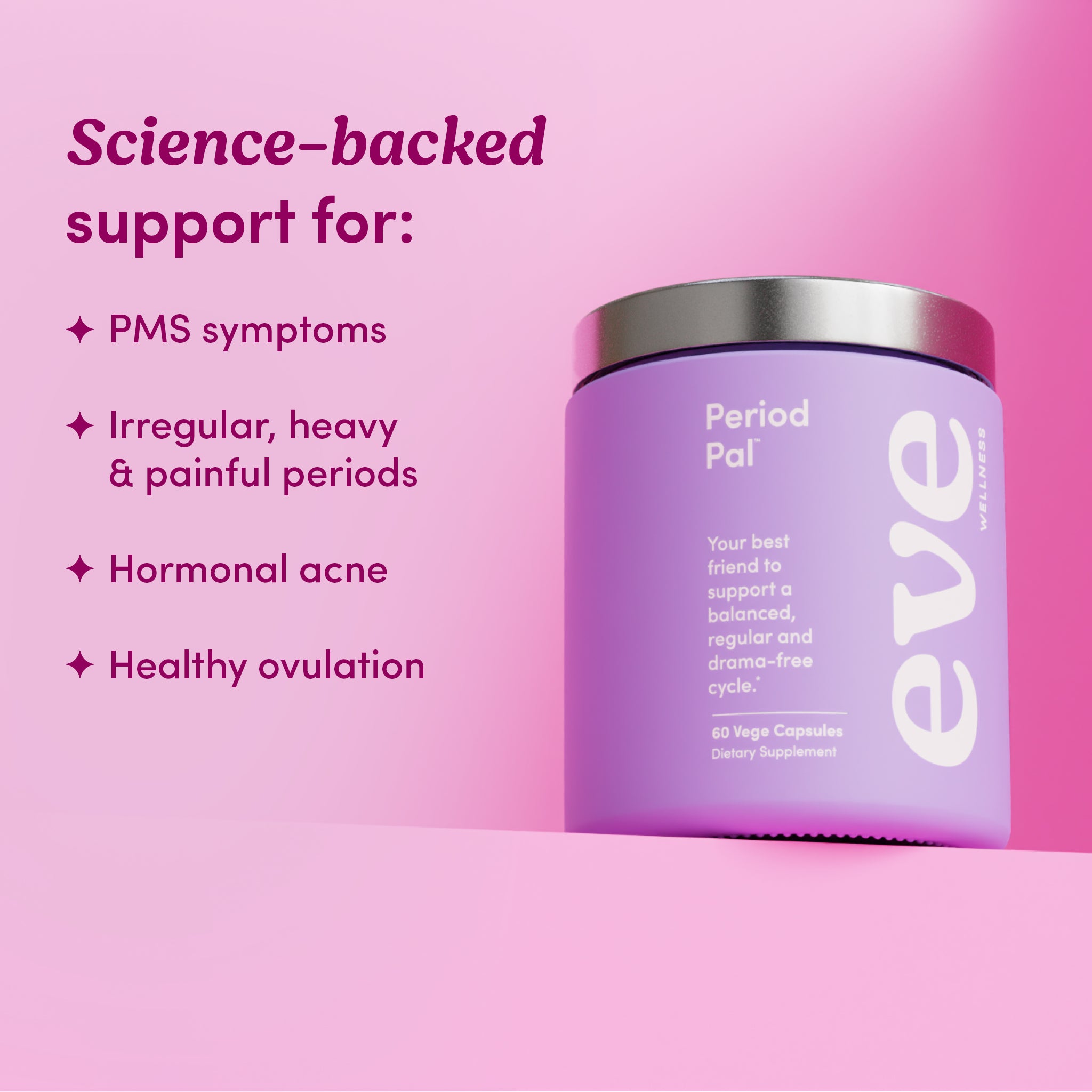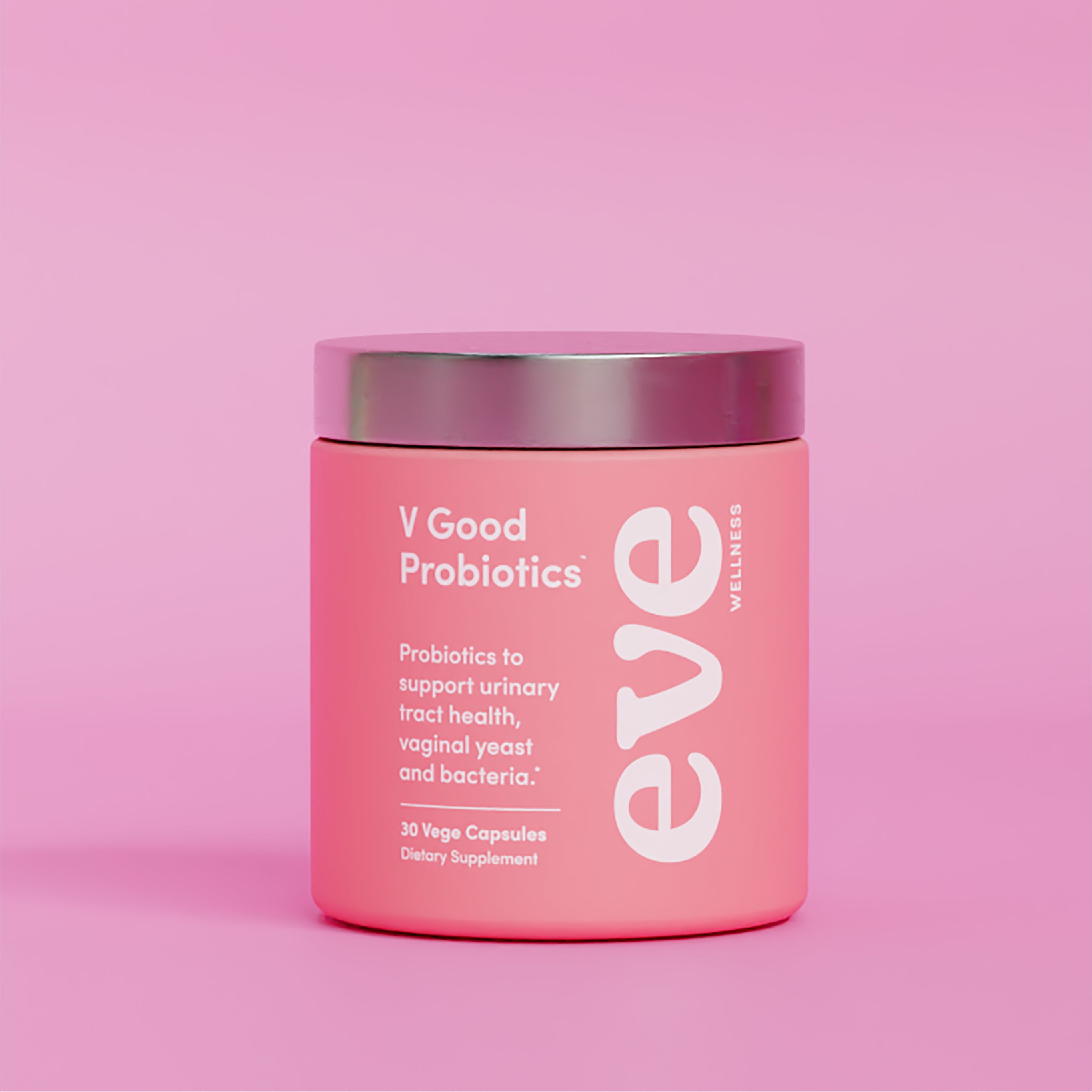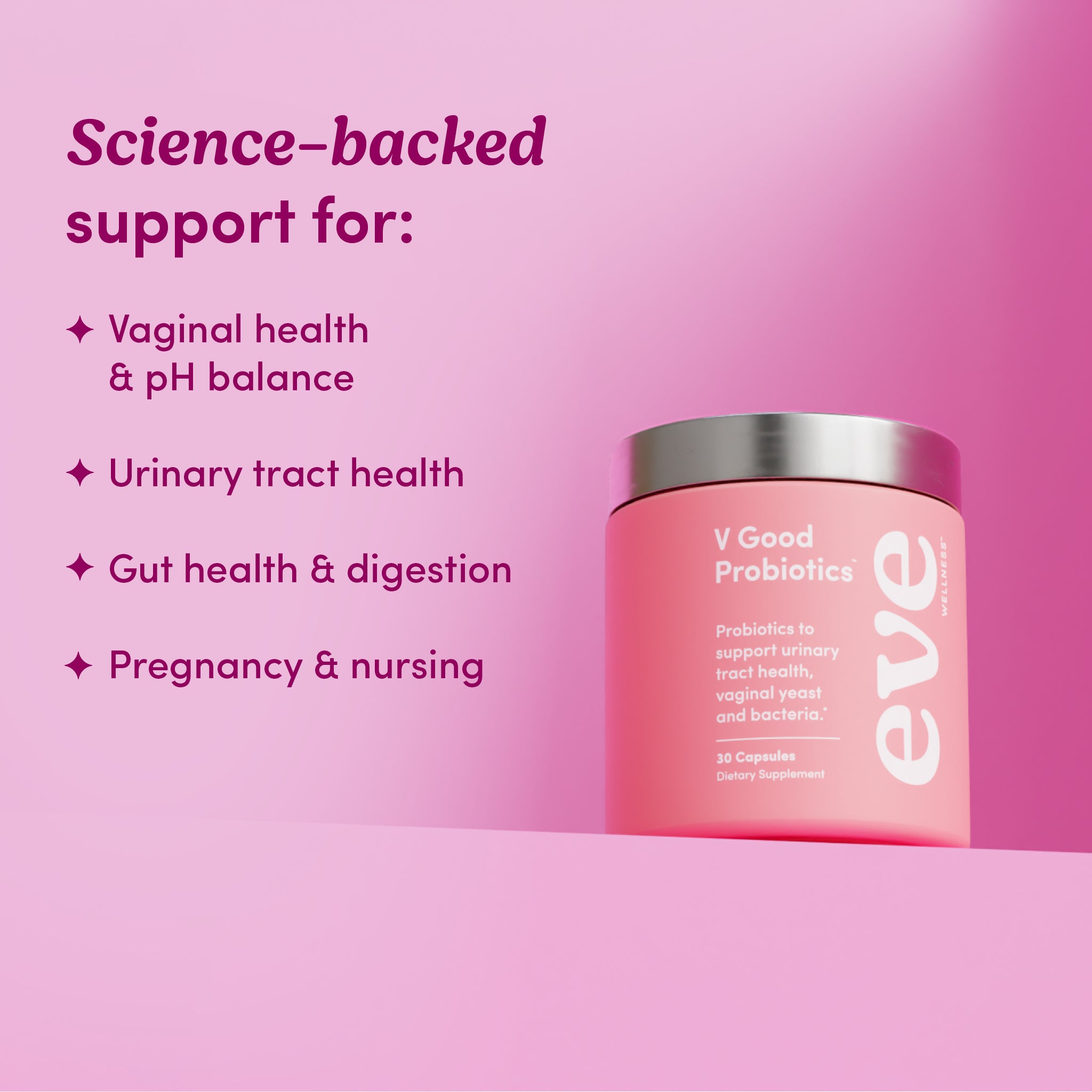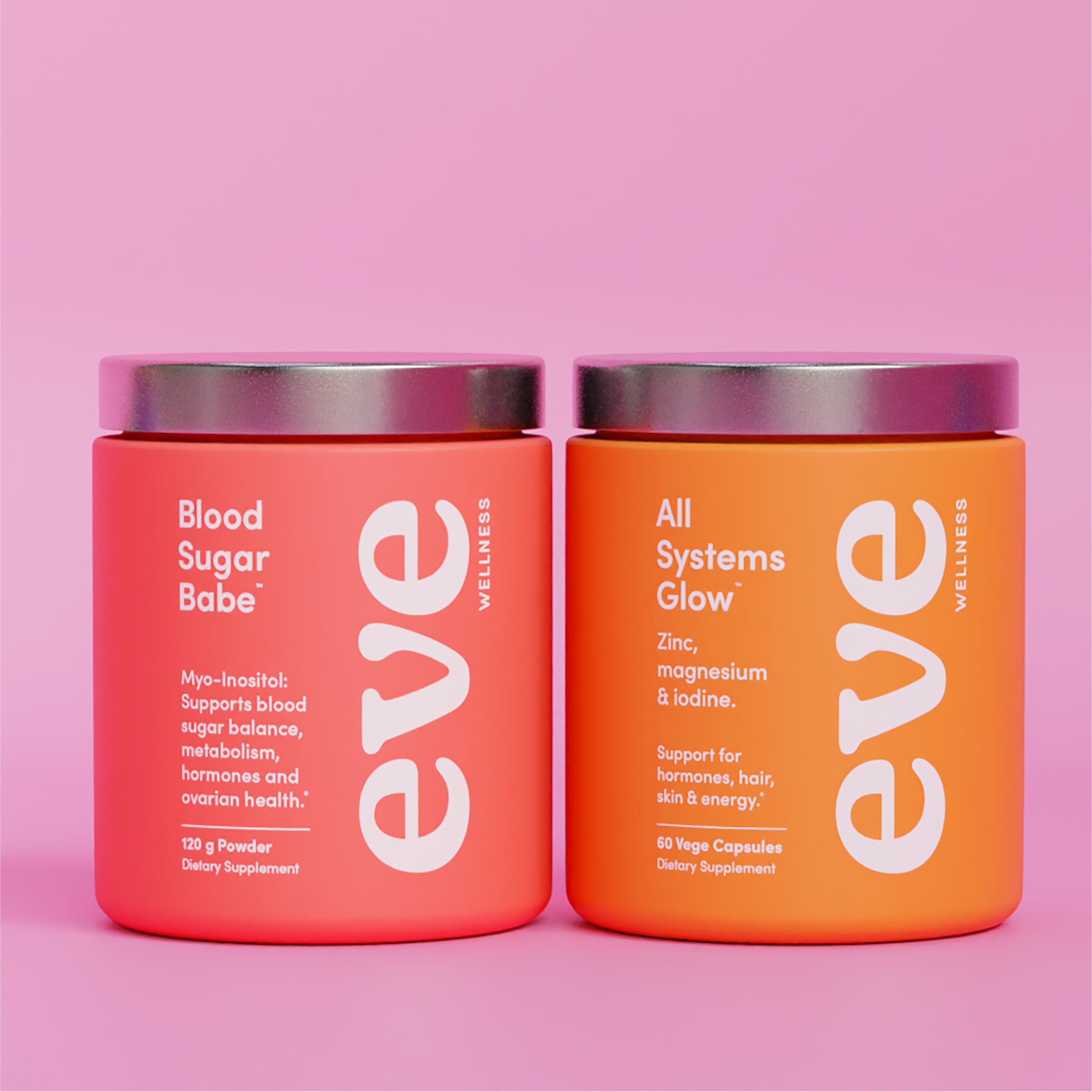Mental and emotional stress impacts our physical health in a whole range of different ways and our periods and reproductive health are no exception.
1. Be prepared for an early visit
If your stress levels take off during the second half of your cycle, be prepared for your period to come a little earlier than your cycle tracking app might predict.
Along with soothing the mind and balancing the effects of oestrogen, progesterone also plays an important role in holding the uterine lining in place during the luteal phase of your cycle. As both progesterone and cortisol are made from the same precursor hormone; pregnenolone, an increase in stress hormone production happens at the sacrifice of progesterone.
If your period comes earlier than expected, you can thank your body for prioritising your own safety and survival over baby making this month.
This is nothing to be too worried about, and is just a gentle nudge from your body that it would love you to incorporate a few more of the tips we give later in this blog.
2. A late visit
Higher stress levels can also prevent ovulation from taking place altogether, leading to what’s known as an anovulatory cycle.
Anovulatory cycles are often more on the ‘irregular’ side than ovulatory cycles. If your cycle is longer than 35 days, there’s a good chance you haven’t ovulated—again, just another example of your body having your back and prioritising survival over reproduction.
3. Or... No visitor at all
If your period doesn’t come at all, it doesn’t necessarily mean there’s a baby on the way (although we’d recommend making sure of course...).
Stress can also cause your period to ‘skip’ a month, as your brain sends your ovaries a message to hold tight and sit this one out.
When the ovaries hit pause, both oestrogen and progesterone remain at low levels, and neither ovulation nor menstruation take place.
While you may miss your monthly visitor and the release that can come with it, the odd skipped period, although disconcerting at the time, isn’t necessarily something to worry about long term. Or maybe you’d welcome not having to deal with a period on top of everything else that’s going on? Hey, there’s no shame in that!
If your period goes on vacay for 2-3 months or more, we’d recommend exploring why this might be the case.
4. You might experience an increase in PMS in months to come
All of the above ways that stress can make your cycle a little wonky relate to your body producing less progesterone than it usually would in a healthy, less-stressed, ovulatory cycle.
If you’ve been following along for a while, you’ll know that lower levels of progesterone - either on its own or in relation to oestrogen - is a common culprit behind PMS.
While an increase in mood swings, irritability and all of those other lovely sensations we associate with premenstrual syndrome won’t make isolation a super fun time for you (or those in your bubble) - stress and PMS have a very real relationship that’s well worth being aware of.
What can you do to keep your cycle as drama-free as possible?
While your cycle going a little ‘out of whack’ is perfectly normal and is your body’s natural response to the changes happening all around us, there are ways you can support your body and hormones through this phase. These include:
Reducing stress where you can
Let’s all laugh together right? We know. But despite the strange and stressful time that we find ourselves in, there are still ways we can up all things self care, and reduce our exposure to external stressors.
This could be as simple as starting each day by writing down three things that you are grateful for, trying out a free meditation app, or making sure to only expose yourself to current events and the media once per day.
Upping your essential nutrients
Magnesium, zinc, iodine, selenium, vitamin B6 all play an essential role in keeping your ovaries happy and your hormones rising and falling as they should.
In times of stress your body can churn through these nutrients much faster, and it's more important than ever to make sure you’re getting enough in your tank.
Consider beneficial herbs & adaptogens
Certain ovary-nourishing herbs such as Vitex Agnus found in Period Pal support ovulation and progesterone production.
Adaptogens such as Ashwagandha, Wild Yam & Rhodiola are also incredibly beneficial in ‘adapting’ your body's response to stress and supporting both mental and physical resilience to all forms of stress.
So while you may feel as though everything that’s happening is out of your control, there’s something that is - and always will be - in your control: how you choose to nourish, nurture and love on yourself and your body.
When it comes to your health, hormones and happiness during times like these, don’t underestimate the power of simple practices like the above to support yourself. Practice mindfulness and stress reduction. Treat yourself to nourishing food. Be gentle with yourself and those around you.
